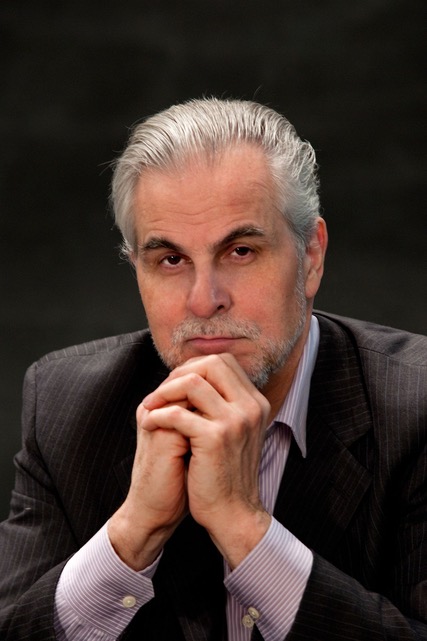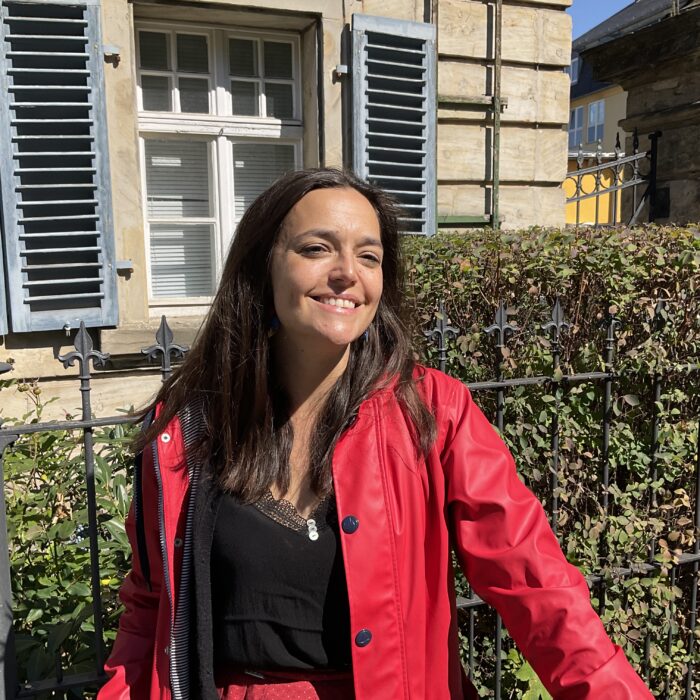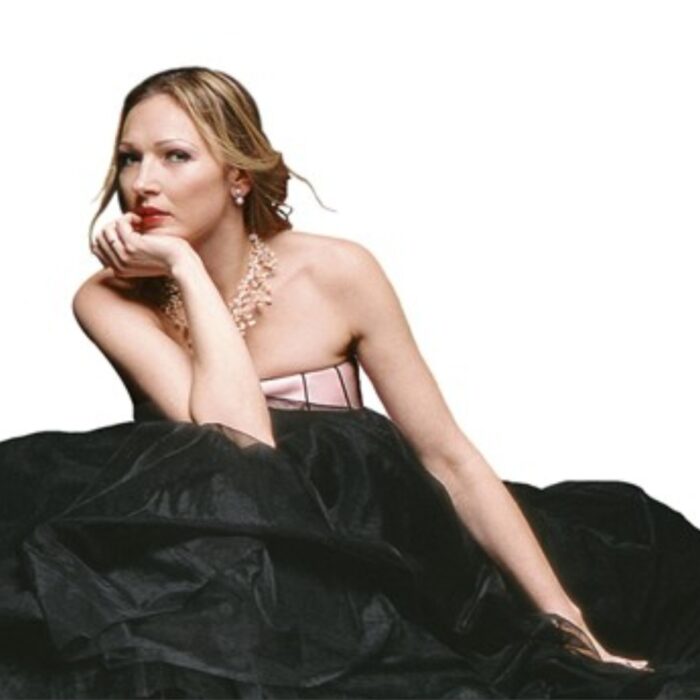
Q & A: Constantine Orbelian on the New York City Opera, Dmitri Hvorostovsky & Future Albums
By Francisco SalazarIn 2024, the New York City Opera named Constantine Orbelian the Executive Director of the company while still continuing as the Music Director. The company has gone through a series of challenges since it reopened in 2016 and has not had a linear season.
However, it has continued to perform at Bryant Park every summer, bringing classic works to the public.
Now under the leadership of Orbelian, a conductor with years of experience leading many of the greatest stars in the world, from Dmitri Hvorostovsky, Anna Netrebko, Jonas Kaufmann, Renee Fleming, to Asmik Grigorian, Kristine Opolais, and Stephen Costello, there is a new vision for the company to thrive in New York.
OperaWire spoke to the conductor about his plan and his hopes for the future of the New York City Opera.
OperaWire: You just became the Executive Director of the New York City Opera. Tell me about the plans for the company.
Constantine Orbelian: I’m the Executive Director and the music director, and principal conductor.
In June, we did these traditional performances at Bryant Park and I am happy to keep it going, even though I’m in the midst of resurrecting the board, and I found some fabulous, new board members.
You can imagine with this president, Donald Trump, and all the stuff going on, people are donating money less and less because they don’t know what’s going to happen tomorrow. But in any case, I’m doing that as much as I can, and all my friends performed for those concerts.
After those June concerts, we are doing a semi-staged “Carmen” in September. So that’s going to be fun. And I’m looking forward to doing some incredible projects in the near future.
OW: What is the most important priority for the New York City Opera at this moment?
CO: The main thing for me at this point is getting a home. That’s my number one priority with my board members. There are a number of theaters that are being looked at by the city of New York and also by the state of New York that will give us access for a certain number of weeks every year. I believe that without a home, it’s hard to put stuff here and there.
And once we find it, one of my big focuses will be doing operas for children because I was raised in an immigrant family, and my parents had that tradition. Both my parents were from the Soviet Union, my mother was from Ukraine, and my father was from Armenia. They have a huge tradition of operas for children and ballets for children.
OW: Tell me about the repertoire because it is not so well-known in the U.S.?
CO: They’re beautiful and many are 19th century composers like Cesar Cui who wrote “Little Red Riding Hood.” Then you’ve got, you know, “Puss in boots” and “Peter and the Wolf.” You’ve also got works from many Russian composers, Weinberg and Nino Rota’s “Aladdin.”
There are all kinds of kids performances.
OW: What is your plan to get these works on the stage?
CO: I’ve been meeting with various ambassadors at the United Nations and mostly Eastern European, who have this tradition. And they said they would be really very happy to support things like that.
And everybody wants to continue the traditions that they grew up with and to bring those traditions to New York City and the United States.
To be honest with you, when you go to the Metropolitan Opera and you’re sitting in the back, you see all these gray-haired people. And, once those people go, we don’t have an audience. We’re not building audiences for the future if we don’t educate the kids.
One of my big focuses is going to be Christmas tree galas. So I’m looking for just the right space because that’s a huge tradition. I think that would be a huge success because it’s a thing for the international diaspora and it’s something very popular.
When I lived in Russia for 30 years and I was head of the Moscow Chamber Orchestra, we take my son starting in 1993, to Saint Petersburg for concerts for kids starting at age two.
The opera houses would do a 15-minute “Little Red Riding Hood” with a string quartet and then they would have little photo sessions and the kids would come dressed up.
The theaters would be filled with people. And it’s a completely different demographic than who goes with Met.
The other thing I am thinking about is how to make it democratic pricing. I want to make people feel like anybody can go.going to come.
So these are things I am planning on doing so that there is an audience for major opera houses and traditional opera.
OW: What other projects are you thinking about?
CO: I’m doing joint projects with Dubai, and I’m doing joint projects with other theatres. Dubai is very interested in children’s opera, and they have a huge diaspora there from all over the world. I’ve already signed a joint venture with this lovely theatre in Dubai, and we’re going to be doing some great stuff.
We’ll have young performers. The whole point is that this would be something for young graduates of Manhattan school music, Juilliard, 21-22 year olds, to have the experience of performing and getting some stuff under their belts. This would also give them a springboard for larger work.
I look at City Opera first and foremost as a springboard for young artists, and giving people the chance to be present in New York.
OW: You have performed with major artists in concert. Do you think there is a place for them at the New York City Opera?
CO: Absolutely. I think that would be one of my goals. That’s one of the reasons why I do my concerts and recordings and have all these fabulous opportunities with recording and television recording in Lithuania.
There are a lot of young singers that I have worked with and have listened to that I would love to bring to the States.
I find that my mission is to help people and to try and produce things.
OW: I know you had a great relationship with Dmitri Hvorostovsky. Tell me about your collaboration with him.
CO: I’m incredibly grateful and thankful for my 20-year friendship and collaboration with Dmitry Hvorostovsky. It opened huge doors for the great artists of the world. We performed with Renée Fleming and Sondra [Radavansky], and Jonas [Kaufmann]. Everybody wanted to sing with Dmitri, and I was very lucky to be with him on that journey. We also did the concert with [Anna] Netrebko at the Red Square that was broadcast worldwide.
I was in the right place at the right time, and I met the right person, and we clicked. To have a relationship like that with one of the greatest artists ever was such a gift. And it gives me as a conductor confidence.
He could have taken any conductor he wanted around the world, but he took me. And it’s because everybody that I worked with had a wonderful relationship with the singers.
OW: Aside from the New York City Opera, tell me about your other projects?
CO: I’m continuing to record. I recorded a CD with Arsen Sogomonyan, which is coming out in the fall. I recorded it in Kaunas. The CD is going to be magnificent, and it includes Arias from Tosca and Otello. I was thrilled to know he got called last-minute at the Met for “The Queen of Spades” because nobody sings it like him.
I also did a CD with Liparti Avetsiyan, and I am still collaborating with Delos.
We’re also doing their tribute to Mario Lanza with Stephen Costello, and we just recorded the CD. We did some concerts.
I did this incredible television program for Arte with Asmik Grigorian at home because she’s Lithuanian, and Dimitry Popov.
I am also recording with Guanqun Yu and Kristina Mkhitaryan, who I just adore. I also did some concerts with Jonathan Tetelman in South America.
So, I’ve got a lot of projects in the pipeline.


